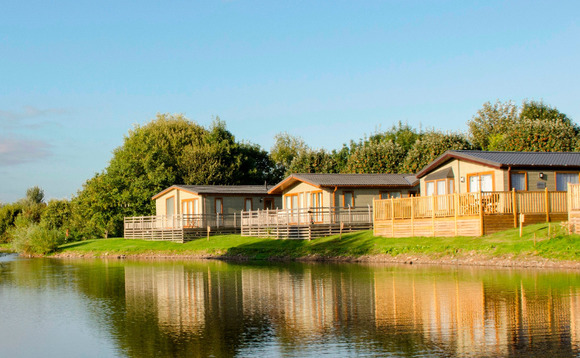
Political and economic uncertainty drives PE to UK staycations

Geopolitical and economic events have led to a rising trend for domestic holidays in the UK. Kenny Wastell explores private equity's moves to capitalise on changing holiday habits
Recent years have seen a boom in private equity investments in the European travel and tourism industry. The sector enjoyed unprecedented attention from PE backers in 2015 specifically, according to unquote" data, with 31 buyout and expansion deals marking the highest dealflow seen in two decades. Only 2007 and 2013, which each saw 30 such transactions, came close to matching these levels. Similarly, at €6.8bn the aggregate value of travel and tourism deals in 2015 was some 24% higher than the next highest total of €5.5bn seen in 2005.
Of particular note, the UK and Ireland accounted for 42% of this dealflow, with aggregate values falling just 14% shy of an all-time high in the region. Yet, while high profile deals - such as 3i's £200m acquisition of Audley Travel and Exponent Private Equity's £220m acquisition of Big Bus Tours - characterised the landscape last year, 2016 has seen a marked change in the dealmaking environment. Aggregate deal volume and value in the UK tourism sector have dropped dramatically throughout the year. However, there has been healthy activity in the domestic holiday parks sector, as well as related markets.
From a total of just nine investments in the UK tourism, travel and hotel industry so far in 2016, four have been for holiday park operators. Recent deals in the sector include Business Growth Fund's (BGF) £11m investment in Coppergreen Developments; Palatine Private Equity's £40m SBO of Verdant Leisure; LDC's follow-on investment to support Away Resorts' bolt-on of of Cosways Holiday Park; and Bridgepoint Development Capital's SBO of education-based tours company Inspiring Learning. In related sectors, CBPE Capital acquired caravan manufacturer ABI from LGV Capital in May and camping and leisure products retailer Go Outdoors was recently sold by YFM Equity Partners and 3i to JD Sports Fashion.
One of the uncertainties within travel at the moment is what impact there will be on the consumer when the cost of overseas holidays starts to rise" - Chris Watt, ECI Partners
It appears investors are looking to capitalise on the growing appetite among Britons for holidaying at home. English tourism agency Visit England reported there were 14.9 million domestic holidays taken in England in the first five months of the year, the highest number reported since 2011. Furthermore, with sterling plunging against all major currencies after that period, it seems reasonable to assume that figure is only likely to rise should present conditions persist.
"One of the uncertainties within travel at the moment is what impact there will be on the consumer when the cost of overseas holidays starts to rise," says ECI partner Chris Watt, who has a seat on the board at luxury rail holiday provider Great Rail Journeys. "We haven't seen that filtering through into holiday pricing just yet. It will probably be something that impacts on holidays in 2018 or late 2017. The main booking period for travel is from January to February and it may be that by then some of that currency impact starts showing through on pricing unless the pound makes a recovery."
Despite having recovered some of its slump since 23 June, sterling remains 15% lower against the US dollar and 9% down on the euro at the time of writing. As a result, the UK holiday market is likely to enjoy a boost from both domestic and international holidaymakers so long as consumer spending remains robust, argues BGF investor and Coppergreen Developments board member Barry Jackson. "There was already increasing demand and sustained growth in UK-based holidays prior to the referendum vote," he says. "But Brexit and the exchange rate implications are only going to bolster that as it becomes more expensive for people to go abroad."
Indeed, when 3i and YFM sold Go Outdoors, a retailer of equipment and clothing for camping and outdoor leisure activities, sources close to the situation told The Telegraph the transaction was in part affected by the anticipated impact of post-Brexit consumer uncertainty on the so-called ‘staycation' market.
The continuing geopolitical challenge
As well as the shifting currency landscape, holidaymakers across Europe are also responding to the impact of geopolitical developments such as terrorist attacks in Paris, Nice and Brussels. Though based in the UK, ECI's Great Rail Journeys offers holidays across Europe, as well as globally. "There are a number of elements right now that will have and are having an impact on the sector," says Watt. "To a greater or lesser extent, that's always the case in the travel market. ECI had travel investments in the portfolio at the time of the 9/11 terrorist attacks and during the 2003 Gulf War. These events come along and they do impact on travel businesses and demand but ECI is an experienced investor in the sector so we recognise these dynamics and are comfortable with them."
However, Watt also highlights the long-term resilience of the travel sector and argues investors must ensure they invest in broad-based businesses that are not over-exposed to any individual geographic market. "Over the last twelve months, we've had Brexit and a number of terrorist events across Europe, including Brussels and Paris - which are both Eurostar hubs - and we've had the migrant crisis in Europe too. All of those factors have presented a headwind to a business like Great Rail Journeys," he says. "But despite this, the company has performed very solidly overall as other areas of the business such as the UK and long-haul programmes have outperformed." Furthermore he says it is imperative to structure deals in such a way that they have the greatest possible ability to ride out any unforeseen storms.
In July 2016, low-cost airline EasyJet was one of a number of carriers to introduce sales during a period traditionally viewed as peak tourist season. The company's chief executive Carolyn McCall cited both Brexit-related uncertainty and terrorism as two of the main factors contributing to the unprecedented challenges faced by the travel market. By contrast, in the same month regional tourist board Visit East Anglia reported a 25% year-on-year increase in enquiries and bookings for the first three weeks of July.
In 2008 a lot of businesses in the sector were very highly leveraged, so the crash hit them hard. As a result, it's a sector some investors might have steered relatively clear of for the three-to-four years after the recession" - Barry Jackson, Business Growth Fund
Yet while macroeconomic and geopolitical factors undoubtedly have an effect on the tourism sector, BGF's Jackson argues there are other factors boosting the domestic tourism sector. In particular he points to the growing trend for more frequent, briefer breaks that lend themselves to short-distance travel. "There's a trend away from people taking just one big holiday over the summer," he says. "People are looking at two, three, or even four holidays a year, but they are also more likely to be shorter breaks. That may be because of the challenges of modern life, where people currently have busy work and family lives. Arguably taking two weeks out for a holiday is not as easy as it once was. The attraction [of BGF] to Coppergreen was that it's a UK-based holiday park operator, provides high quality accommodation and is available for short breaks."
Jackson argues the holiday park sector is also particularly attractive because of the high level of asset backing and predictability of earnings. Additionally, he says the sector may be finally experiencing a sustained recovery following the financial crash. According to unquote" data, in the years between 2008 and 2011 the UK travel and tourism sector experienced a dramatic slump in dealflow and aggregate value. During the period between 2009 and 2011 a total of just £79.6m changed hands for assets in the sector, compared to £975m in the preceding three years and £1.23bn from 2012 to 2015. Similarly dealflow only recovered to 2007 levels in 2013
"In 2008 a lot of businesses in the sector were very highly leveraged, so the crash hit them hard," says Jackson. "That's taken quite a long time to recover from. As a result, it's a sector some investors might have steered relatively clear of for the three-to-four years after the recession. But as things have stabilised it's now a good time to get back into the sector."
With sterling volatility set to continue until the post-Brexit picture becomes clearer and MI5 proclaiming the current threat level for international terrorism in the UK as ‘severe', it is reasonable to predict a rise in holidaymakers' appetite for ‘staycationing'. However, while the sector remains ripe for consolidation, private equity players might be best advised to leverage any such investments cautiously.
Latest News
Stonehage Fleming raises USD 130m for largest fund to date, eyes 2024 programme
Sponsor acquired the public software group in July 2017 via the same-year vintage Partners Group Global Value 2017
Stonehage Fleming raises USD 130m for largest fund to date, eyes 2024 programme
Czech Republic-headquartered family office is targeting DACH and CEE region deals
Stonehage Fleming raises USD 130m for largest fund to date, eyes 2024 programme
Ex-Rocket Internet leader Bettina Curtze joins Swiss VC firm as partner and CFO
Stonehage Fleming raises USD 130m for largest fund to date, eyes 2024 programme
Estonia-registered VC could bolster LP base with fresh capital from funds-of-funds or pension funds









